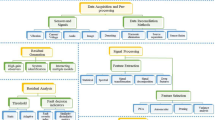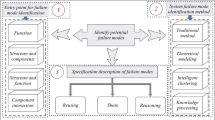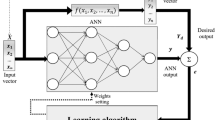Abstract
The exploration of component states for optimizing maintenance schedules in complex systems has garnered significant interest from researchers. However, current literature usually overlooks the critical aspects of system flexibility and reconfigurability. Judicious implementation of system reconfiguration can effectively mitigate system downtime and enhance production continuity. This study proposes a dynamic condition-based maintenance policy considering reconfiguration for reconfigurable systems. A double-layer decision rule was constructed for the devices and systems. To achieve the best overall maintenance effect of the system, the remaining useful life probability distribution and recommended maintenance time of each device were used to optimize the concurrent maintenance time window of the devices and determine whether to reconfigure them. A comprehensive maintenance efficiency index was introduced that simultaneously considered the maintenance cost rate, reliability, and availability of the system to characterize the overall maintenance effect. The reconfiguration cost was included in the maintenance cost. The proposed policy was tested through numerical experiments and compared with different-level policies. The results show that the proposed policy can significantly reduce the downtime and maintenance costs and improve the overall system reliability and availability.







Similar content being viewed by others
References
Zhai S, Gehring B, Reinhart G (2021) Enabling predictive maintenance integrated production scheduling by operation-specific health prognostics with generative deep learning. J Manuf Syst 61:830–855
Pech M, Vrchota J, Bednar J (2021) Predictive maintenance and intelligent sensors in smart factory: review. Sensors (Basel) 21:1470. https://doi.org/10.3390/s21041470
Mohan TR, Roselyn JP, Uthra RA et al (2021) Intelligent machine learning based total productive maintenance approach for achieving zero downtime in industrial machinery. Comput Ind Eng 157:107267. https://doi.org/10.1016/j.cie.2021.107267
Huynh KT (2021) An adaptive predictive maintenance model for repairable deteriorating systems using inverse Gaussian degradation process. Reliab Eng Syst Saf 213:107695. https://doi.org/10.1016/j.ress.2021.107695
She D, Jia M (2021) A BiGRU method for remaining useful life prediction of machinery. Measurement 167:108277. https://doi.org/10.1016/j.measurement.2020.108277
Jamil N, Hassan MF, Lim SK et al (2021) Predictive maintenance for rotating machinery by using vibration analysis. J Mech Eng Sci 15:8289–8299
Shi Y, Lu ZZ, Huang HZ et al (2022) A new preventive maintenance strategy optimization model considering lifecycle safety. Reliab Eng Syst Saf 221:108325. https://doi.org/10.1016/j.ress.2022.108325
Xue B, Xu F, Huang X et al (2022) Improved similarity based prognostics method for turbine engine degradation with degradation consistency test. Appl Intell 52:10181–10201
Serradilla O, Zugasti E, Rodriguez J et al (2022) Deep learning models for predictive maintenance: a survey, comparison, challenges and prospects. Appl Intell 52:10934–10964
Serradilla O, Zugasti E, de Okariz JR et al (2022) Methodology for data-driven predictive maintenance models design, development and implementation on manufacturing guided by domain knowledge. Int J Comput Integr Manuf 35:1310–1334
Popescu TD, Aiordachioaie D, Culea-Florescu A (2022) Basic tools for vibration analysis with applications to predictive maintenance of rotating machines: an overview. Int J Adv Manuf Technol 118:2883–2899
Ouadah A, Zemmouchi-Ghomari L, Salhi N (2022) Selecting an appropriate supervised machine learning algorithm for predictive maintenance. Int J Adv Manuf Technol 119:4277–4301
Meng HX, Liu X, Xing JD et al (2022) A method for economic evaluation of predictive maintenance technologies by integrating system dynamics and evolutionary game modelling. Reliab Eng Syst Saf 222:108424. https://doi.org/10.1016/j.ress.2022.108424
Al Hanbali A, Saleh H, Ullah N (2022) Two-threshold control limit policy in condition-based maintenance. Qual Reliab Eng Int 38:2170–2187
Olde Keizer MCA, Flapper SDP, Teunter RH (2017) Condition-based maintenance policies for systems with multiple dependent components: a review. Eur J Oper Res 261:405–420
Ruschel E, Santos EAP, Loures EdFR (2017) Industrial maintenance decision-making: a systematic literature review. J Manuf Syst 45:180–194
Jerbi A, Hachicha W, Aljuaid AM et al (2022) Multi-objective design optimization of flexible manufacturing systems using design of simulation experiments: a comparative study. Machines 10:247. https://doi.org/10.3390/machines10040247
Nabi HZ, Aized T, Riaz F (2022) Modeling, analysis and optimization of carousel-based flexible manufacturing system. J Ind Prod Eng 39:479–493
Zhang S, Li S, Wang H et al (2022) An intelligent manufacturing cell based on human–robot collaboration of frequent task learning for flexible manufacturing. Int J Adv Manuf Technol 120:5725–5740
Maganha I, Silva C, Ferreira LMDF (2018) Understanding reconfigurability of manufacturing systems: an empirical analysis. J Manuf Syst 48:120–130
Rösiö C, Aslam T, Srikanth KB et al (2019) Towards an assessment criterion of reconfigurable manufacturing systems within the automotive industry. Procedia Manuf 28:76–82
Bortolini M, Galizia FG, Mora C (2018) Reconfigurable manufacturing systems: literature review and research trend. J Manuf Syst 49:93–106
Dahmani A, Benyoucef L, Mercantini JM (2022) Toward sustainable reconfigurable manufacturing systems (SRMS): past, present, and future. Procedia Comput Sci 200:1605–1614
Zhang WY, Gan J, Hou QY (2022) Joint decision of condition-based maintenance and production scheduling for multi-component systems. Proc Inst Mech Eng Part B J Eng Manuf 236:726–740
Zhai SM, Kandemir MG, Reinhart G (2022) Predictive maintenance integrated production scheduling by applying deep generative prognostics models: approach, formulation and solution. Prod Eng Res Dev 16:65–88
Ghaleb M, Taghipour S, Zolfagharinia H (2021) Real-time integrated production-scheduling and maintenance-planning in a flexible job shop with machine deterioration and condition-based maintenance. J Manuf Syst 61:423–449
Rokhforoz P, Fink O (2022) Maintenance scheduling of manufacturing systems based on optimal price of the network. Reliab Eng Syst Saf 217:108088. https://doi.org/10.1016/j.ress.2021.108088
Ladj A, Tayeb FBS, Varnier C (2021) Hybrid of metaheuristic approaches and fuzzy logic for the integrated flowshop scheduling with predictive maintenance problem under uncertainties. Eur J Ind Eng 15:675–710
Dong Y, Xia T, Fang X et al (2019) Prognostic and health management for adaptive manufacturing systems with online sensors and flexible structures. Comput Ind Eng 133:57–68
Wang YK, Li XP, Chen JY et al (2022) A condition-based maintenance policy for multi-component systems subject to stochastic and economic dependencies. Reliab Eng Syst Saf 219:108174. https://doi.org/10.1016/j.ress.2021.108174
Oakley JL, Wilson KJ, Philipson P (2022) A condition-based maintenance policy for continuously monitored multi-component systems with economic and stochastic dependence. Reliab Eng Syst Saf 222:108321. https://doi.org/10.1016/j.ress.2022.108321
Dinh DH, Do P, Iung B (2022) Multi-level opportunistic predictive maintenance for multi-component systems with economic dependence and assembly/disassembly impacts. Reliab Eng Syst Saf 217:108055. https://doi.org/10.1016/j.ress.2021.108055
Xu J, Liang ZL, Li YF et al (2021) Generalized condition-based maintenance optimization for multi-component systems considering stochastic dependency and imperfect maintenance. Reliab Eng Syst Saf 211:107592. https://doi.org/10.1016/j.ress.2021.107592
Han X, Wang ZL, Xie M et al (2021) Remaining useful life prediction and predictive maintenance strategies for multi-state manufacturing systems considering functional dependence. Reliab Eng Syst Saf 210:107560. https://doi.org/10.1016/j.ress.2021.107560
Pater I, Mitici M (2021) Predictive maintenance for multi-component systems of repairables with remaining-useful-life prognostics and a limited stock of spare components. Reliab Eng Syst Saf 214:107761. https://doi.org/10.1016/j.ress.2021.107761
Geng SJ, Wang XL (2022) Predictive maintenance scheduling for multiple power equipment based on data-driven fault prediction. Comput Ind Eng 164:107898. https://doi.org/10.1016/j.cie.2021.107898
Özgür-Ünlüakın D, Türkali B (2021) Evaluation of proactive maintenance policies on a stochastically dependent hidden multi-component system using DBNs. Reliab Eng Syst Saf 211:107559. https://doi.org/10.1016/j.ress.2021.107559
Cui PH, Wang JQ, Li Y (2021) Data-driven modelling, analysis and improvement of multistage production systems with predictive maintenance and product quality. Int J Prod Res 60:6848–6865
Lu B, Zhou X (2019) Quality and reliability oriented maintenance for multistage manufacturing systems subject to condition monitoring. J Manuf Syst 52:76–85
Wang YM, Liu PD, Yao YY (2022) BMW-TOPSIS: a generalized TOPSIS model based on three-way decision. Inform Sci 607:799–818
Xie S (2022) PdM-database. https://github.com/shulian00/PdM-database. Accessed 11 Feb 2023
Acknowledgements
This work was supported by the National Key R&D Program of China (Grant No. 2022YFE0114100) and the National Key R&D Program of China (Grant No. 2017YFE0101400).
Author information
Authors and Affiliations
Corresponding author
Rights and permissions
Springer Nature or its licensor (e.g. a society or other partner) holds exclusive rights to this article under a publishing agreement with the author(s) or other rightsholder(s); author self-archiving of the accepted manuscript version of this article is solely governed by the terms of such publishing agreement and applicable law.
About this article
Cite this article
Xie, SL., Xue, F., Zhang, WM. et al. A condition-based maintenance policy for reconfigurable multi-device systems. Adv. Manuf. 12, 252–269 (2024). https://doi.org/10.1007/s40436-023-00465-x
Received:
Revised:
Accepted:
Published:
Issue Date:
DOI: https://doi.org/10.1007/s40436-023-00465-x




